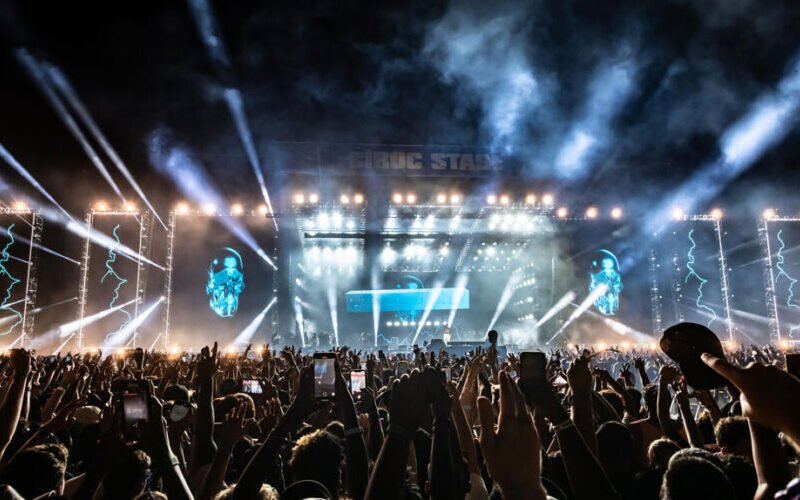There’s seriously nothing quite like being at a live concert. The music hits you in the chest, the lights are flashing everywhere, and you’re surrounded by thousands of other people who are just as pumped as you are. It’s this incredible rush that you can’t get from listening to music at home.
But here’s the thing that a lot of people don’t think about until it’s too late: all that excitement and energy can also create some pretty real safety risks. We’re talking about everything from simple slips and falls to dangerous crowd surges, falling equipment, or even fights breaking out around you.
Staying safe doesn’t mean you have to be paranoid or miss out on the fun. It just means being smart about how you navigate the venue and trusting your instincts when something doesn’t feel right. Plus, understanding that concert injury liability can get pretty complicated if you do get hurt because of poor venue conditions or someone’s negligence.
This guide will give you practical tips for keeping yourself safe while still having an amazing time, and help you understand what to do if something does go wrong.
Be Aware of Your Surroundings
The first thing you should do when you walk into any concert venue is figure out where the exits are. I’m not trying to be dramatic here, but in an emergency, you want to know exactly how to get out fast. Look for multiple exit routes, not just the main entrance you came through.
Keep your eyes open for potential hazards that could trip you up or cause problems. Concert venues are notorious for having cables running across floors, wet spots from spilled drinks, uneven surfaces, or temporary barriers that aren’t clearly marked. A lot of these places are old buildings that weren’t originally designed for concerts, so they can have weird quirks.
Stay away from areas directly under large speakers, lighting rigs, or other equipment that’s suspended overhead. Yeah, the chances of something falling are pretty small, but why take the risk when you can enjoy the show just as well from a safer spot?
Pay attention to how the crowd around you is behaving. If people start getting pushy, aggressive, or you notice any signs of panic starting to spread, that’s your cue to start moving toward a less crowded area before things get out of hand.
Protect Yourself in Large Crowds
Look, mosh pits and super densely packed crowd areas can be a blast if that’s your thing, but they’re definitely not for everyone. If you’re not comfortable with getting bumped around or potentially knocked down, just stay out of those areas. There’s no shame in enjoying the show from a spot where you feel safer.
If you do end up in a crowded area, try standing sideways rather than facing straight forward. This gives you better balance and makes it harder for someone to knock you over if they bump into you from behind.
Stay hydrated, especially if it’s hot and crowded. Dehydration can make you dizzy or cause you to faint, which is dangerous when you’re surrounded by a bunch of people. Bring a water bottle if the venue allows it, or know where you can buy drinks inside.
Trust your gut feelings about crowd safety. If the area you’re in starts feeling too intense, too packed, or just generally unsafe, don’t try to tough it out. Move to a different spot where you can still see the show but feel more comfortable.
Wear the Right Clothing and Footwear
Closed-toe shoes are absolutely essential at concerts. You’re going to be standing for hours, possibly on concrete floors, and there’s a good chance someone’s going to step on your feet at some point. Sandals or flip-flops are just asking for trouble.
Choose comfortable clothes that let you move around easily. You might need to squeeze through crowds, climb stairs, or move quickly if there’s an emergency. Tight or restrictive clothing can make all of this harder and more uncomfortable.
Leave the dangling jewelry, loose scarves, or big bags at home. These can get caught on things or snagged by other people in crowded areas. Plus, you really don’t want to lose expensive jewelry in a mosh pit.
Bring ear protection if you’re concerned about hearing damage. Concert volumes can definitely cause permanent hearing loss, especially if you’re close to the stage or speakers. There are musicians’ earplugs that reduce volume while still letting you hear the music clearly.
Know Your Limits and Trust Your Instincts
This might be obvious, but avoid drinking too much or using substances that mess with your judgment and coordination. Concerts can be unpredictable environments where you need to stay alert and make quick decisions about your safety.
Listen to what your body is telling you. If you start feeling lightheaded, anxious, claustrophobic, or just generally not good, take a break. Find a less crowded area, sit down if possible, get some fresh air, or even leave early if you need to.
Don’t let anyone pressure you to stay in situations that make you uncomfortable. Whether it’s friends wanting you to get closer to the stage or strangers encouraging you to join a mosh pit, you get to decide what feels safe for you.
If you see fights starting, aggressive behavior, or anything that looks like it could escalate into violence, get away from that area immediately. Don’t try to film it or get a better look – just move to somewhere safer.
What to Do If You’re Injured
If you do get hurt at a concert, your first priority is getting medical help if you need it. Don’t try to tough it out if you’re seriously injured – venue staff should be able to call paramedics or direct you to on-site medical facilities.
Report what happened to venue security or staff as soon as possible. They need to know about safety hazards or incidents that occur on their property. This also creates an official record of what happened, which could be important later.
If you’re able to do it safely, take photos of your injuries and the area where the incident occurred. Document any hazards that contributed to your injury, like wet floors without warning signs, broken barriers, or poor lighting.
Understanding your rights about concert injury liability is important, especially if your injury was caused by the venue’s negligence rather than just an unfortunate accident. If you think the venue failed to maintain safe conditions or didn’t provide adequate security, it might be worth talking to a lawyer about your options.
Enjoy the Show Safely
Concerts are supposed to be about having an awesome time and making great memories, not worrying about getting hurt or dealing with injuries afterward. Taking a few simple precautions and staying aware of your surroundings can seriously reduce your risk of problems while still letting you soak up all the excitement of live music.
If something does go wrong and you get injured, remember to get help immediately, report the incident, and understand that you have rights when it comes to seeking compensation if negligence was involved.
A little bit of planning and common sense goes a long way toward making sure you have a safe, unforgettable concert experience that you’ll remember for all the right reasons.






